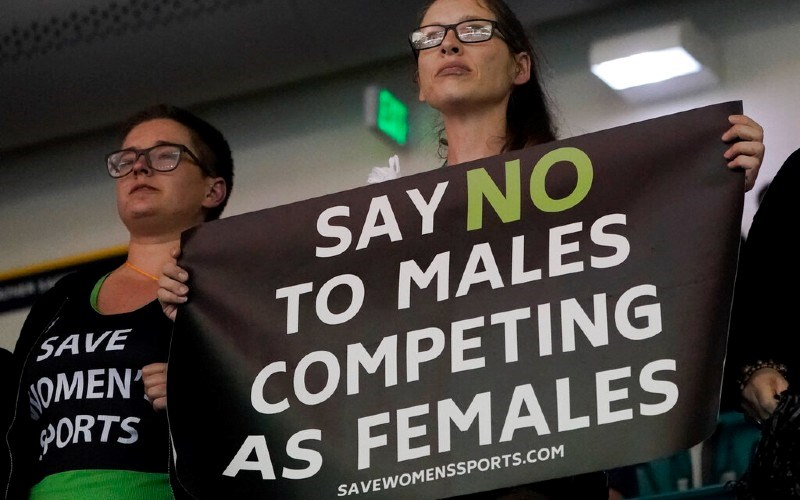The first case is about two biological male teens, one who played soccer on the girls team this fall and another who plans to participate on the track team this winter.
A federal judge ruled earlier this year that the teens can try out for and play on girls school sports teams. The order only applies to those two individuals for now as they seek to overturn the Fairness in Women’s Sports Act.
Lawyers for the teens said in court Thursday they hoped the matter could go to trial and be resolved before the start of the next school year in September. They said the teens’ school districts and others in the state have asked for guidance regarding the statute. Lawyers for the state said they needed more time to prepare.
Judge Talesha Saint-Marc suggested the timing of the trial was ambitious and asked that both sides talk further about scheduling.
The law, signed by Gov. Chris Sununu in July, bans biological males in grades 5 to 12 from playing on girls sports teams. It requires schools to designate all teams as either girls, boys or coed, with eligibility determined based on students’ birth certificates “or other evidence.”
Sununu had said it “ensures fairness and safety in women’s sports by maintaining integrity and competitive balance in athletic competitions.”
In the second case Thursday, a judge heard from parties involved in a school district dispute in Bow over a decision to bar parents from wearing pink wristbands with “XX” — representing the female chromosomes — at a girls high school soccer game in September. The parents sued the district.
The district issued no-trespass orders banning two parents from school grounds because they wore the wristbands. Those orders have since expired, but at issue Thursday was whether the plaintiffs should be allowed to wear the wristbands and carry signs at upcoming school events, including basketball games, swim meets and a music concert, while the case proceeds.
“They’re self-censoring, with good reason because they’ve been censored before, and defendants say they’re going to do it again,” said the plaintiffs’ attorneys, Endel Kolde. He pointed at a court document in which school district officials said they are justified in viewing the wristbands as targeting transgender students in general, regardless of whether such students were present at the events.
“This is viewpoint discrimination, and it’s very clear they’re proud of it,” he said.
Kolde initially conceded that a school district can limit speech “to some degree” in order to protect children from harassment, but he stopped short of agreeing with the judge’s claim that yelling “transgender students out” at a particular player would be subject to such regulation.
“It might be,” he said.
“I’m trying to get you to concede the obvious,” Judge Steven McAuliffe said.
“It’s less than obvious to me,” Kolde said.
The first witness was plaintiff Kyle Fellers, who said he purchased the pink wristbands thinking his daughter and her teammates would wear them, but ended up wearing one himself after they declined. After being told to leave the game, he stood in the parking lot with a sign that said “Protect women’s sports for female athletes.”
“I wanted to support women’s sports and I believed what was going on was a travesty,” he said.
His attorney played video recorded by a town police officer showing his interactions with Fellers at the game, including Fellers calling school officials “cowards” and “Nazis.” Under questioning by his attorney, Fellers said had no problem with transgender people outside of the issue of their participation in sports.
School district officials said they acted appropriately.







